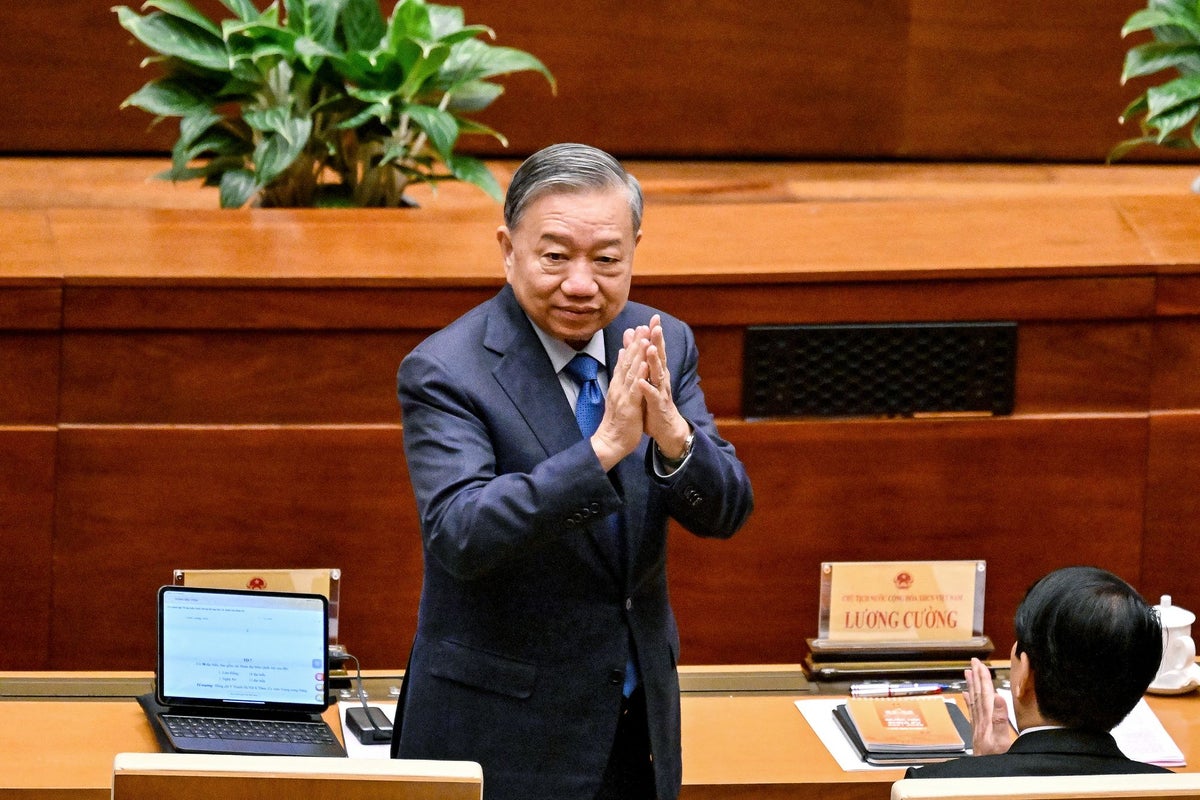
A BBC journalist has been barred from leaving Vietnam and allegedly subjected to multiple days of interrogation as the country’s top leader arrived in the UK on Tuesday for an official visit.
The BBC on Tuesday alleged that officials in the Asian country stopped its journalist – a Vietnamese citizen who lives and works in Thailand – from leaving the country, seized her passport, and subjected her to interrogation.
The British government is being urged by friends of the journalist to pressure Vietnam’s Communist Party general secretary To Lam, who is scheduled to meet prime minister Sir Keir Starmer, to secure her release.
Friends hope her case can be raised by the British prime minister during his meeting with the Vietnamese leader.
The journalist, who works for the BBC’s Vietnamese Service, had returned to her home country in August to renew her passport. “One of our journalists has been unable to leave Vietnam for several months as the authorities have withheld their ID card and their renewed passport,” the BBC said in a statement.
The local police allegedly held her reissued passport and interrogated her for five days over her work. “We are deeply concerned about our journalist’s wellbeing and urge the authorities to allow them to leave immediately, providing them with their renewed passport so they can return to work”.
The journalist, who does not want to be named, was “shaken” by the gruelling interrogation and pressured into acknowledging 18 articles that she had published, The Times reported, citing her friends.
During Mr Lam’s visit, both nations are expected to raise their ties to a strategic comprehensive partnership, according to British officials. However, Mr Lam’s visit appears to have been eclipsed by yet another glaring example of the clampdown on press freedom in Vietnam.
“When you undertake that degree of interrogation, and when you’re singling out specific articles that they’ve forced her to acknowledge, I think they’re preparing for an arrest,” said Phil Robertson, a human rights campaigner in Bangkok.
“It may be right now that they’re not arresting her because they don’t want to spoil the visit of the Communist Party of Vietnam’s secretary general to meet with Keir Starmer and have this special relationship inked between the two countries,” he told The Times.
A Foreign Office spokesperson told the BBC that the UK’s “position and track record defending media freedom is clear”.
“We remain concerned by reported harassment of NGOs, journalists, and rights activists and communities in Vietnam and continue to raise these concerns directly with our Vietnamese counterpart,” the spokesperson added.
Vietnam is one of the most hostile nations for independent journalism and journalists are routinely jailed or censored. The Vietnamese government under Mr Lam’s leadership has intensified its clampdown on dissent by arresting activists, journalists, lawyers and critics.
In May, Vietnam banned the print edition of The Economist, which featured To Lam on the magazine’s cover with stars painted on his eyes.
Rights organisation Reporters Without Borders (RSF), which calls Vietnam “one of the world’s biggest prisons for journalists”, ranked the South Asian country 173rd in its press freedom index of 180 countries.
